Politics
Why is Afghanistan so prone to earthquakes?
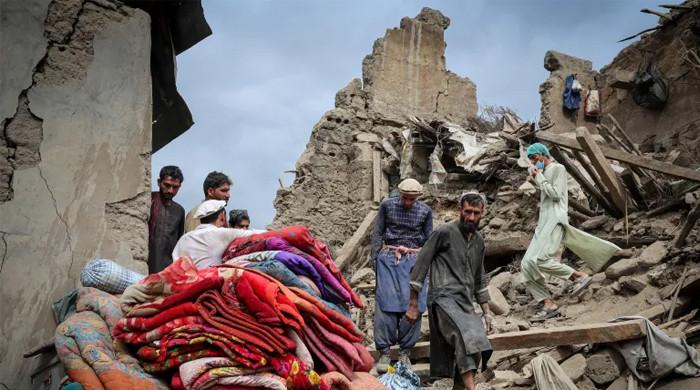
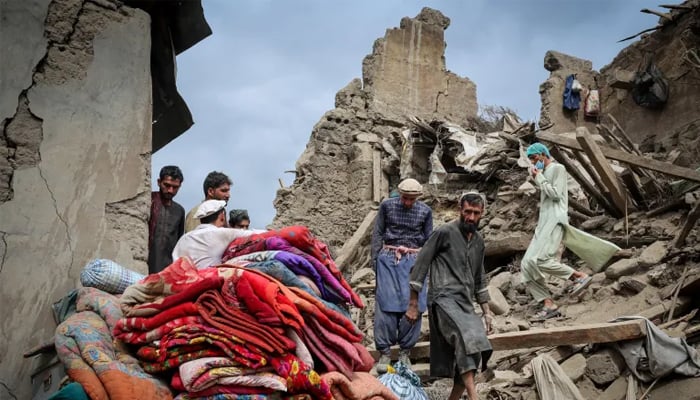
A 6.3-magnitude earthquake struck near the northern Afghan city of Mazar-e Sharif early on Monday, killing at least 10 people and injuring about 150, just months after a quake and strong aftershocks killed more than 2,200 people at the end of August.
Here is a look at why the war-shattered South Asian country experiences frequent tremors, and how their impact can be reduced:
Are earthquakes common in Afghanistan?
Hemmed in by rugged mountains, Afghanistan is prone to a range of natural disasters, but its earthquakes cause the most fatalities, killing about 560 people on average each year and causing annual damages estimated at $80 million.
Studies indicate at least 355 earthquakes with a magnitude higher than 5.0 have hit Afghanistan since 1990.
Why is Afghanistan prone to tremors?
Afghanistan is located on the edge of the Eurasian tectonic plate, which shares a transgression zone with the Indian plate — implying the two may converge or brush past each other — and is also influenced by the Arabian plate to its south, creating one of the world’s most tectonically active regions.
The northward movement of the Indian plate and its thrust against the Eurasian plate is usually responsible for Afghanistan’s numerous quakes.
Which areas are vulnerable?
Eastern and northeastern Afghanistan, especially regions along its borders with Uzbekistan, Tajikistan, and Pakistan, are particularly prone to earthquakes.
This includes heavily populated Kabul, which has the highest average estimated damage due to earthquakes, amounting to $17 million every year, according to a study.
Earthquakes are also particularly dangerous in Afghanistan’s mountains where they can trigger landslides, exacerbating loss of life and property.
Which were Afghanistan’s worst earthquakes?
Afghanistan has recorded around 100 “damaging” earthquakes since 1900.
Among the worst in recent years was a magnitude 6 quake in 2022 that killed 1,000 people. Multiple quakes in one month in 2023 together killed 1,000 people and destroyed entire villages.
One of Afghanistan’s largest earthquakes, with a magnitude of 7.5, struck in 2015, killing 399 people in Afghanistan, Pakistan and India.
Some of the greatest devastation was seen in 1998 as two earthquakes shook Afghanistan within three months – the first killing 2,300 people and the second 4,700.
How can the country build resilience?
Studies recommend new structures be built in an earthquake-resistant way and existing buildings be retrofitted to reduce chances of collapse.
Better monitoring and early warning systems must also be created for more timely alerts, while fault lines should be mapped using geospatial and remote sensing technologies to enable relocation of people in vulnerable areas, they suggest.
Politics
US says Trump prefers diplomacy with Iran but warns he has military options
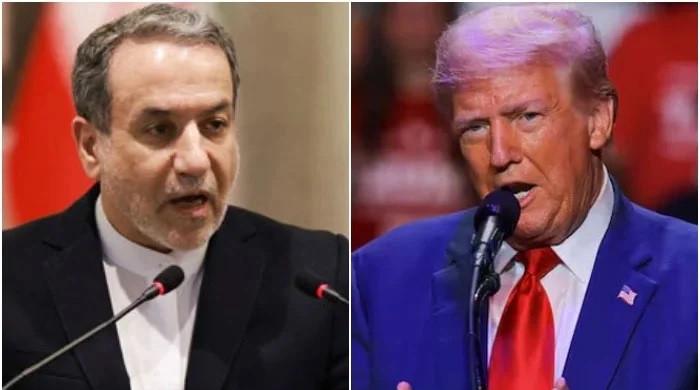
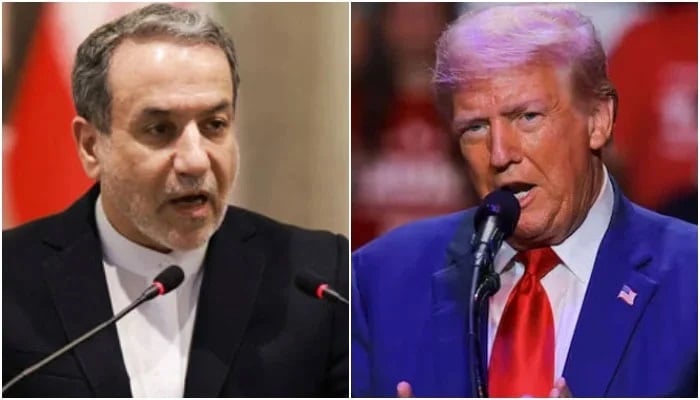
- Trump has said Khamenei ‘should be very worried.’
- US wants missiles, proxies, rights issues included.
- Fears grow that failed talks could spark wider war.
The White House said on Thursday that diplomacy is President Donald Trump’s first choice for dealing with Iran and he will wait to see whether a deal can be struck at high-stakes talks, but also warned that he has military options at his disposal.
Final preparations were underway for Friday’s meeting in Oman amid heightened tensions as the US builds up forces in the Middle East, which Trump has called a massive “armada,” and regional players seek to avert what many fear could escalate into a wider war.
The talks were set to go ahead even though the two sides have had differences over the agenda, and that has increased doubts about the prospects for a deal. Trump has threatened to carry out strikes on Iran if an agreement cannot be reached.
The US previously said it wanted the discussions to include Iran’s missile arsenal and other issues, while Tehran has insisted on focusing exclusively on its disputed nuclear program. It was unclear whether that disagreement had been resolved.
“The president’s diplomacy is always his first option when it comes to dealing with countries all around the world, whether it’s our allies or our adversaries,” White House press secretary Karoline Leavitt told reporters when asked about the coming talks.
She reiterated Trump’s position that “zero nuclear capability is something he’s been very explicit about” in his demands for Iran.
“He wants to see if a deal can be struck,” Leavitt said. “And while these negotiations are taking place, I would remind the Iranian regime that the president has many options at his disposal, aside from diplomacy, as the commander in chief of the most powerful military in the history of the world.”
Iran’s Foreign Minister Abbas Araqchi departed for Oman on Thursday. His spokesperson Esmail Baghaei said Tehran would engage “with authority and to reach a fair, mutually acceptable and dignified understanding on the nuclear issue.”
“We hope the American side will also participate in this process with responsibility, realism and seriousness,” Baghaei added.
Araqchi is expected to meet in Muscat with Steve Witkoff, Trump’s special envoy, and Jared Kushner, the president’s son-in-law and adviser.
On the eve of the talks, Iran’s state-run Press TV said “one of the country’s most advanced long-range ballistic missile(s),” the Khorramshahr 4, has been deployed at one of the Revolutionary Guards’ underground missile sites. The missile has a range of 2,000 km (1,240 miles) and is capable of carrying a 1,500-kg (3,300-pound) warhead, it added.
The US has pressed Iran to accept a much more limited range for its missiles.
Mutual threats
Trump’s blunt warnings and Iran’s vows of counter-strikes have spurred regional governments’ efforts to calm the situation.
Turkish President Tayyip Erdogan said his government was working hard to prevent US-Iran tensions from tipping the Middle East into a new conflict. He has spent years cultivating a close relationship with Trump while expanding Ankara’s diplomatic influence across the region.
Speaking to reporters on a return flight from a visit to Egypt, Erdogan added that talks at the level of the US and Iranian leadership would be helpful after lower-level nuclear negotiations due in Oman on Friday, according to a transcript of his comments shared by his office on Thursday.
Tensions ratcheted up this week amid uncertainty over the location and format for the talks, which will follow Tehran’s bloody crackdown on street protests last month.
Asked on Wednesday whether Iran’s Supreme Leader Ayatollah Ali Khamenei should be worried, Trump told NBC News: “I would say he should be very worried. Yeah, he should be.”
After Trump spoke, US and Iranian officials said the two sides had agreed to shift the talks’ location to Muscat after initially accepting Istanbul.
At a press conference in Doha, German Chancellor Friedrich Merz said on Thursday that “great concern” had been expressed about potential escalation in the conflict with Iran during his meetings with officials in a visit to the Gulf region. He urged Iran to end what he called aggression and help bring stability to the region.
Gulf Arab states fear that Iran will carry out its threat to target US bases on their territory if the United States attacks the Islamic Republic.
China, meanwhile, said it supported Iran’s legitimate right to the peaceful use of nuclear energy and opposed the “threat of force and sanction pressure.”
‘Bad things will happen’
Iran has said the talks must be confined to its long-running nuclear dispute with Western powers.
But US Secretary of State Marco Rubio said on Wednesday that talks would have to include the range of Iran’s ballistic missiles, its support for armed proxy groups around the Middle East and its treatment of its own people, besides nuclear issues. Iranian sources say the US is demanding Tehran limit the range of Iran’s missiles to 500 km (310 miles).
Tehran’s regional sway has been weakened by Israel’s attacks on its proxies – from Hamas in Gaza to Hezbollah in Lebanon, the Houthis in Yemen and militias in Iraq – and by the ousting of Iran’s close ally, former Syrian President Bashar al-Assad.
Iran says its nuclear activities are meant for peaceful, not military purposes, while the US and Israel have accused it of past efforts to develop nuclear weapons.
The US has sent thousands of troops to the Middle East, as well as an aircraft carrier, other warships, fighter jets, spy planes and air-refuelling tankers.
Trump has warned that “bad things” would probably happen if a deal could not be reached.
Politics
Dubai launches driverless taxi service as crown prince takes first ride


DUBAI: Dubai has taken another step towards smart mobility as Crown Prince Sheikh Hamdan bin Mohammed bin Rashid Al Maktoum arrived at the World Governments Summit 2026 in a fully autonomous taxi, formally signalling the launch of the emirate’s driverless transport service.
Officials said 100 driverless taxis will begin operating next month, marking the first phase of the programme aimed at transforming public transport through advanced technology.
The autonomous vehicles are powered by artificial intelligence and advanced sensor systems, enabling them to analyse data within seconds and make independent driving decisions without human intervention.
Speaking on social media, Sheikh Hamdan said the future of mobility in Dubai would be smarter, safer and more efficient, adding that the project would improve quality of life and make transport more inclusive for residents and visitors.
The initiative is being implemented by Dubai’s Roads and Transport Authority (RTA) in partnership with global technology firms as part of the emirate’s broader strategy to adopt sustainable and intelligent transport solutions.
Politics
Saudi Arabia to begin issuing Hajj visas from Feb 8
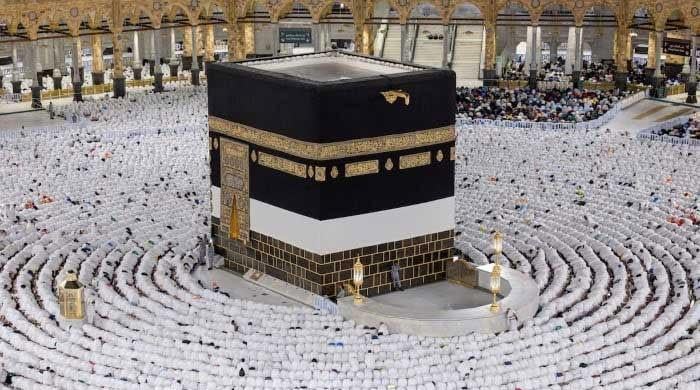
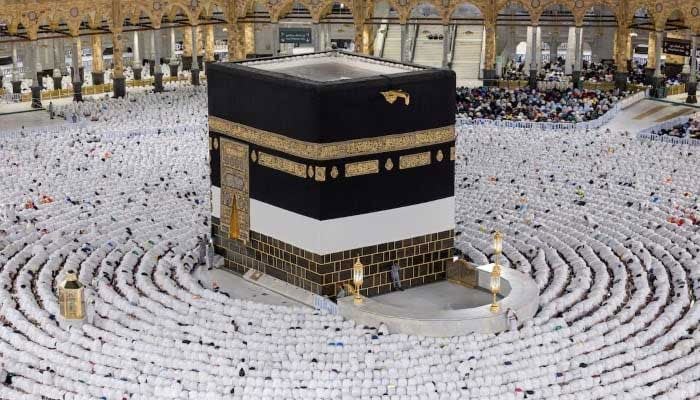
RIYADH: Saudi Arabia will start issuing Hajj visas to intending pilgrims worldwide from February 8, the Ministry of Hajj and Umrah confirmed on Thursday.
According to Saudi Gazette, the early launch is part of an accelerated timeline designed to enhance service readiness and ensure the comfort of pilgrims approximately four months ahead of the rituals, in alignment with the Kingdom’s Vision 2030.
“Contracts covering 100% of services at the holy sites for pilgrims arriving from abroad have been finalised, along with all accommodation contracts in Makkah through the Nusk platform,” confirmed the ministry.
750,000 pilgrims have registered so far, with packages booked for 30,000 pilgrims directly from their home countries, it added.
The ministry further said that approximately 485 camps have been allocated for international pilgrims at the holy sites, and 73 Hajj affairs offices have completed their basic contractual arrangements.
In Pakistan, registration completed for 119,000 government pilgrims and 60,000 private pilgrims, confirmed Federal Minister for Religious Affairs Sardar Muhammad Yousaf last month.
He had said that Hajj preparations were underway according to the Saudi timeline. The minister had said that arrangements for food, transportation and other services were finalised through a competitive process.
During Hajj 2025, the minister had said refunds amounting to Rs3.5 billion were returned to 75% of Pakistani pilgrims, with individual refunds ranging from Rs12,000 to Rs110,000.
He had added that training sessions with audio-visual facilities were conducted at 147 locations nationwide, and well-trained pilgrims displayed discipline during Hajj.
-
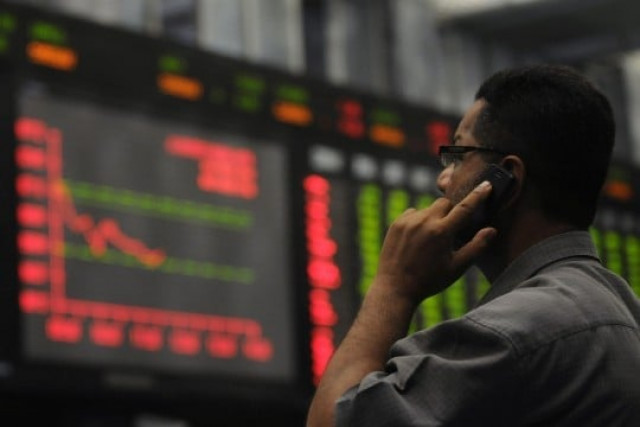
 Business1 week ago
Business1 week agoPSX witnesses 6,000-point on Middle East tensions | The Express Tribune
-

 Tech1 week ago
Tech1 week agoThe Surface Laptop Is $400 Off
-

 Tech1 week ago
Tech1 week agoHere’s the Company That Sold DHS ICE’s Notorious Face Recognition App
-
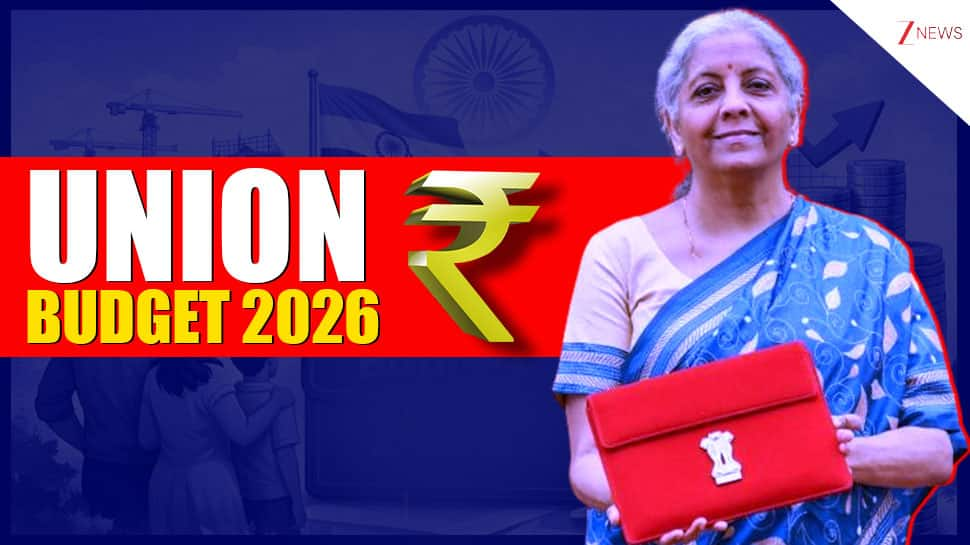
 Business1 week ago
Business1 week agoBudget 2026: Defence, critical minerals and infra may get major boost
-

 Tech4 days ago
Tech4 days agoHow to Watch the 2026 Winter Olympics
-

 Tech6 days ago
Tech6 days agoRight-Wing Gun Enthusiasts and Extremists Are Working Overtime to Justify Alex Pretti’s Killing
-

 Fashion7 days ago
Fashion7 days agoItaly’s Brunello Cucinelli debuts Callimacus AI e-commerce experience
-

 Business6 days ago
Business6 days agoVideo: Who Is Trump’s New Fed Chair Pick?






